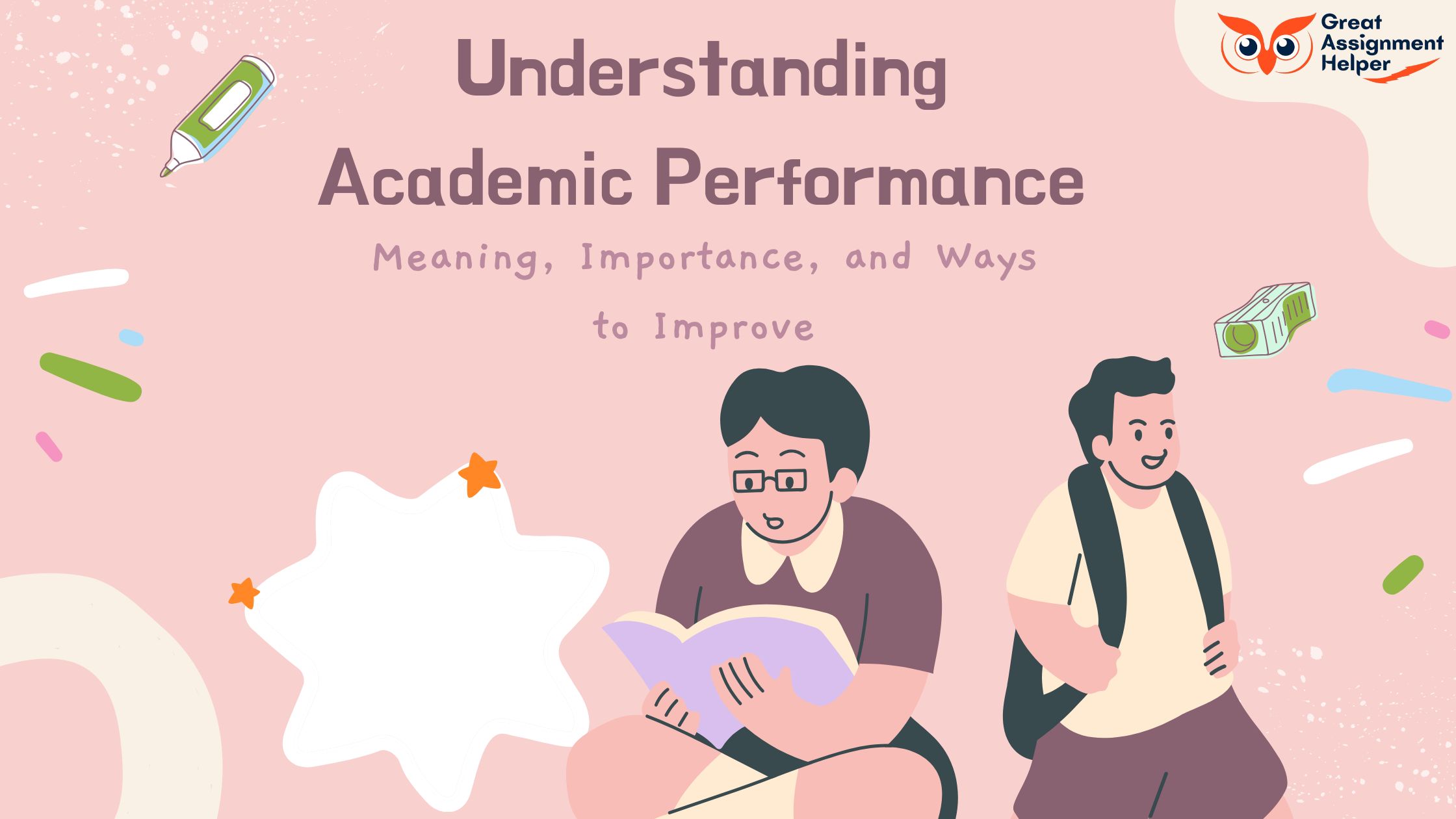
Academic performance is a critical factor in shaping a student’s educational journey and future opportunities. Whether you're a student, parent, or educator, understanding academic performance and how to enhance it is vital. This comprehensive guide explores the academic performance meaning, its significance, types, examples, and effective strategies to boost it.
Listen To This Blog
Introduction to Academic Performance
Academic Performance Meaning
Academic performance refers to how well a student meets educational benchmarks such as grades, test scores, and teacher evaluations. It is an essential measure of a student's learning ability and overall progress.
Academic performance meaning encompasses not just memorizing facts but also applying knowledge, solving problems, and demonstrating critical thinking.
Types of Academic Performance
Formal and Informal Academic Performance
The type of academic performance can be broadly categorized into formal and informal types.
- Formal performance includes test results, report cards, and grades.
- Informal performance involves classroom participation, behavior, and effort levels, which may not always reflect in scores but are equally important.
Quantitative vs Qualitative Performance
Another way to understand types of academic performance is through:
- Quantitative measures, like GPAs and standardized test scores, and
- Qualitative measures, such as teacher observations, creativity, and communication skills.
Both play a significant role in evaluating a student's overall academic profile.
Types of Academic Performance (Alternative Views)
Some educators also categorize academic performance based on subject-specific achievements, such as proficiency in STEM, languages, or arts. This approach allows for more tailored evaluations, recognizing unique student strengths.
School Performance
Role of Schools in Academic Success
School performance plays a pivotal role in shaping academic outcomes. Schools that offer a supportive learning environment, qualified teachers, and access to resources tend to boost student success. A positive school culture encourages collaboration, curiosity, and a growth mindset.
Measuring School Performance
School performance is typically measured through:
- Student academic outcomes
- Graduation rates
- Attendance records
- Extracurricular participation
Effective schools consistently show improvement in these areas, which directly impacts student learning.
Academic Performance Examples
Report Cards and Grades
One of the most common academic performance examples is the report card. It provides a snapshot of a student's progress in various subjects. Grades reflect not just knowledge but also effort and improvement.
Standardized Test Scores
Tests like SATs, ACTs, and state-level assessments serve as reliable academic performance examples. These scores are often used by educational institutions to evaluate eligibility for admission and scholarships.
Extracurricular Achievements
Academic performance is not limited to classroom tests. Participation in debates, science fairs, or sports competitions also showcases a student’s well-rounded skills and dedication.
Importance of Academic Performance
Career and Higher Education Opportunities
The academic performance importance becomes especially clear when students apply for colleges or jobs. High performers often enjoy better access to top universities and competitive job markets. Academic records are seen as indicators of reliability, perseverance, and intellectual ability.
Personal Growth and Development
Beyond career prospects, the importance of academic performance lies in personal growth. Success in school teaches responsibility, goal setting, and time management—all essential life skills.
Ways to Enhance Academic Performance
Study Habits and Time Management
To enhance academic performance, students should adopt effective study habits:
- Create a dedicated study schedule
- Break study sessions into manageable chunks
- Review notes regularly
Time management allows students to balance schoolwork with rest and recreation, improving focus and reducing burnout.
Teacher and Parental Support
Teachers and parents are vital in helping students enhance academic performance. Regular feedback, motivation, and emotional support can make a big difference. Constructive feedback helps identify areas for improvement without discouragement.
Mental and Physical Well-being
Good health is essential to enhance academic performance. Students should maintain a balanced diet, get enough sleep, and practice stress-relief techniques like mindfulness. A healthy body supports a healthy mind.
Levels of Academic Performance
Below Average, Average, Above Average
The level of academic performance is generally categorized into:
- Below average – Students scoring lower than the expected level
- Average – Meeting the expected academic standards
- Above average – Exceeding expectations with consistent excellence
Understanding these levels helps in designing tailored interventions for each student group.
Excellence and Honors
Students with exceptional levels of academic performance often receive honors, awards, or advanced learning opportunities. These recognitions not only validate effort but also boost self-esteem and motivation.
Conclusion
Academic performance is a multi-dimensional concept that goes beyond grades and test scores. Understanding the academic performance meaning, the importance of academic performance, and the different types of academic performance helps in fostering a more inclusive and effective educational experience.
Whether through formal evaluations, school performance, or academic performance examples, every effort counts. To enhance academic performance, a combination of good habits, strong support systems, and a positive mindset is essential.
Recognizing the different levels of academic performance also allows educators and parents to support students more effectively. By prioritizing education and continuous improvement, we prepare students not just for exams, but for life.
Curious about whether educational platforms can identify AI-generated work? Learn more in this detailed guide on can Blackboard detect AI content and how schools are using technology to ensure academic integrity.

